AEDP® and Psychedelic Assisted Psychotherapy:
The AEDP model’s emphasis on fostering safety, connection, and transformational processes aligns with the therapeutic potential of psychedelics to access core emotions and promote profound shifts. Together, they create opportunities for accelerated healing, integration, and growth when used responsibly in a therapeutic setting.
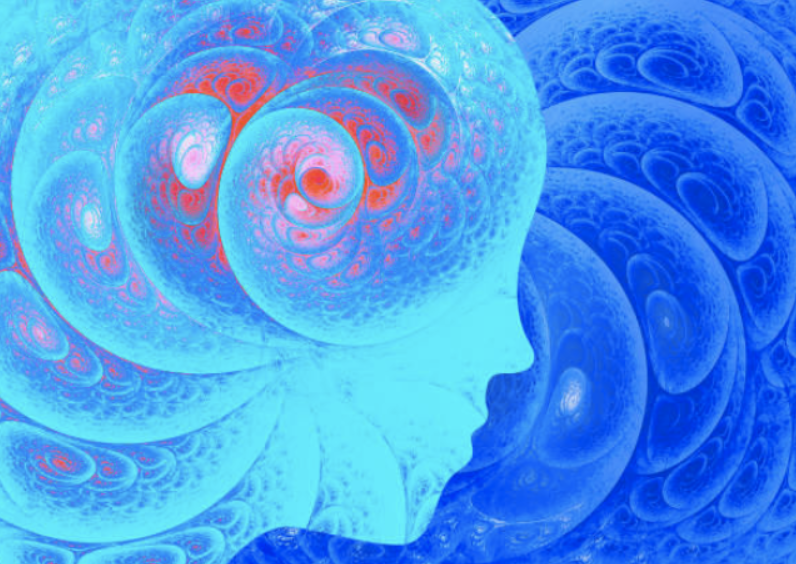
Goals, Committee, Activities & Recommended Resources
The AEDP Institute recognizes the emerging interest in psychedelic-assisted psychotherapy. There exists, among many practitioners, an appetite for training around the safe and legal incorporation of psychedelic substances into their healing practices.
AEDP is a boldly relational, radically transformational model all on its own, and it will always be committed to transforming suffering and promoting flourishing with or without the assistance of psychedelics.
While our plans are still emergent, at this stage it is the Institute’s goal to nurture an extension of AEDP where interested and trained clinicians can unleash the potential of psychedelics to contribute to longstanding AEDP therapeutic aims including: bypassing defenses, facilitating trauma processing and deepening transformational potential.
We hold in the highest esteem the indigenous practices of psychedelic medicines in both historical and present contexts. The Institute acknowledges that the experience of these medicines in conjunction with AEDP is its own category of use. Any research discoveries or implementation of practices around psychedelics are meant to stand in parallel to established traditions, not to disrupt or diminish sacred practices.
Psychedelic-assisted AEDP psychotherapy has tremendous healing possibilities. AEDP is in fact uniquely suited to support the transformational healing powers of psychedelics.
Every aspect of the AEDP Institute’s engagement with this exciting extension of AEDP therapy is being explored with rigor and care.
The AEDP Institute Committee on Psychedelic Assisted Therapy along with several faculty and community members have been actively involved in:
- several research projects
- hosting spaces for discussion about psychedelic assisted AEDP psychotherapy, and
- developing and sponsoring programs to train and supervise AEDP clinicians in whatever can be legally trained, and discussed, and
- developing 1 or more protocols for psychedelic assisted psychotherapy using AEDP
When more of these substances are legal we aim to be ready to provide AEDP practitioners with even more tailored training and supervision.
Sincerely and with excitement,
The AEDP Institute Committee on Psychedelic Assisted Psychotherapy
Meet Our Psychedelic Assisted Psychotherapy Committee and Advisors – and an invitation.
An invitation: If you are fairly advanced in your AEDP training and also fairly advanced in your experiences related to psychedelics, and you are interested in participating with our committee in some way, contact us at psychedelic-work@aedpinstitute.org
Committee Co-chair, Certified Therapist Emily Bilbao, LCSW
Committee Co-chair, Certified Supervisor Elizabeth Perkins, LMFT
Committee Member, Institute Administration Team Leader Monica Hodges, MBA
Committee Advisor, Institute Founder and Director Diana Fosha, PhD
Committee Advisor, Senior Faculty Member Kari Gleiser, PhD
Committee Advisor, Senior Faculty Member Kate Halliday, LCSW
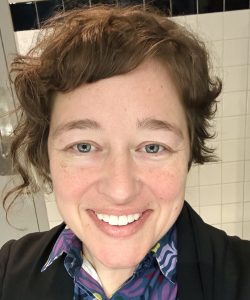
Emily Bilbao, LCSW
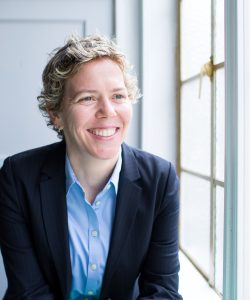
Elizabeth Perkins, LMFT

Monica Hodges, MBA
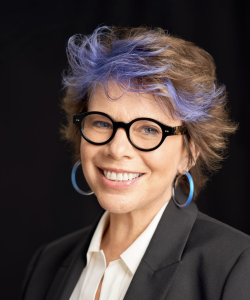
Diana Fosha, PhD
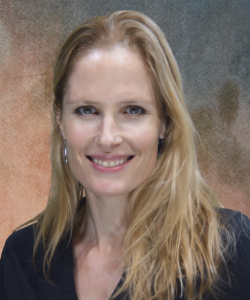
Kari Gleiser, PhD
Upcoming Psychedelic Assisted AEDP Psychotherapy Related Activities
October 2025

Cultivating Joy: An Experiential AEDP, Ketamine and Mindfulness Retreat
Sponsored by: Relationship Resources
Facilitated by: Facilitated by: Jayne Gumpel LCSW, Diana Fosha PhD, Mark Green MD, David Gumpel MA, and Lisa Wang MD
Delivery Format: Live In-person at the Menla Retreat and Spa in the Catskills Mountains
Dates: October 23 – 26, 2025
NOTE: This retreat is not sponsored by AEDP Institute.
Archived Events
Explore AEDP™-Informed Psilocybin Assisted Therapy, Experientially!

Learn how to lead an AEDP-informed psilocybin assisted therapy journey the way that really matters: experientially. Come to this weekend-long, hands-on training. Choose to experience the work as a guide or as a participant.
Presented In-Person at Immersive Therapies in Portland, Oregon
by AEDP in Portland’s Emily Bilbao, LSCW & Deb Lee-Thornby, LMFT and by Liz Perkins, LMFT
an AEDP Institute-Supported* training
Event held – 3 days, Friday thru Sunday | September 13 – 15, 2024
Course Description:
This is a 3-day experiential training for professionals exploring the possibilities of integrating AEDP with therapeutic psychedelic healing experiences.
Together we will learn how to use our AEDP skills of moment-to-moment tracking, relational attunement, undoing aloneness, and the use of touch, affirmations, portrayals and meta-processing, to discover how these skills are the same or differ when sitting with a client in an altered state of consciousness.
The training is set in an intimate setting with no more than 24 participants; in fact we will spend much of the weekend in groups of 3. It involves intellectual and experiential learning allowing trainees to get to know the medicine moment-to-moment through experience, observation, tracking and exploring.
The training will be led by Emily Bilbao, LCSW, Liz Perkins, LMFT, and Deb Lee-Thornby, LMFT. All three instructors have been studying AEDP for many (up to 10) years and are AEDP Certified Therapists. Liz Perkins is an AEDP Certified Supervisor; Emily Bilbao and Deb Lee-Thornby are Supervisors in Training.
In addition to their deep understanding and skills in AEDP, all three instructors bring with them an immense amount of experience working with and navigating altered states of consciousness:
- Both Deb and Emily completed a year-long course in Psychedelic Assisted Therapy from the Integrative Psychiatry Institute and are Licensed Providers of Psilocybin Assisted Therapy in Oregon.
- Liz, Deb and Emily have all completed the MAPS (Multidisciplinary Association for Psychedelic Studies) certification.
- Liz and Emily are founding members of the AEDP Committee on Psychedelic Assisted Psychotherapy.
- Emily has taught two well-received Institute-sponsored courses and seminars about AEDP & psychedelics to the AEDP community.
The training will be led by Emily Bilbao, LCSW, Liz Perkins, LMFT, and Deb Lee-Thornby, LMFT. All three instructors have been studying AEDP for many (up to 10) years and are AEDP Certified Therapists. Liz Perkins is an AEDP Certified Supervisor; Emily Bilbao and Deb Lee-Thornby are Supervisors in Training.
In addition to their deep understanding and skills in AEDP, all three instructors bring with them an immense amount of experience working with and navigating altered states of consciousness:
- Both Deb and Emily completed a year-long course in Psychedelic Assisted Therapy from the Integrative Psychiatry Institute and are Licensed Providers of Psilocybin Assisted Therapy in Oregon.
- Liz, Deb and Emily have all completed the MAPS (Multidisciplinary Association for Psychedelic Studies) certification.
- Liz and Emily are founding members of the AEDP Committee on Psychedelic Assisted Psychotherapy.
- Emily has taught two well-received Institute-sponsored courses and seminars about AEDP & psychedelics to the AEDP community.
Psychedelic Assisted Therapy: Preparation, Integration, and everything in between in the context of AEDP

Online Seminar Series presented by AEDP Certified Therapist Emily Bilbao, LCSW | January 30 – May 7, 2024
The seminar, where we will be actively engaging in discussions about AEDP theory, is best for therapists who are AEDP Level 2 and above or Level 1 therapists who are in AEDP supervision and have read “Undoing Aloneness & the Transformation of Suffering Into Flourishing: AEDP 2.0”
Learning about psychedelic-assisted therapy equips therapists with valuable skills to offer Preparation and Integration sessions to their clients who may be exploring psychedelic therapy outside of their dyad. In this new era of psychedelics, AEDP therapists need to know about this growing area, whether or not they plan to provide it themselves.
This series will provide an opportunity for rich discussions about psychedelic-assisted therapy in the context of AEDP. It will prepare clinicians to help their own clients navigate this evolving field, enhancing their ability to support their clients effectively, while enriching their therapeutic practices. We will delve into a deep understanding of the principles, processes, and ethics of psychedelic-assisted therapy. This series will also help therapists envision what this work can look like when combined with the transformative power and theory of AEDP.
In summary, this series aims to prepare AEDP therapists to be informed, empathetic, and supportive guides on their clients’ journeys toward healing and self-discovery, combining the power of AEDP with the emerging science of psychedelic therapy.
Format: the course will require reading to allow for deep class discussions on theory and practice. There will also be experiential exercises and some clinical video will be shown to illustrate key concepts.
Watch this video where Emily Bilbao describes why this seminar series is relevant and important for all AEDP therapists – not only those already involved in Psychedelic therapy work.
The following topics will be covered:
- Preparation & Transformance Detection
- Set & Setting, creating safety, moment to moment tracking, Defense work
- Music- Influence on Defense work, State 2 experience, and Mystical Experience
- Touch & Consent, Relational Interventions, Can you “feel” me here- literally, Regulating Disregulated Experience
- Bad trips & Undoing Aloneness
- Mystical Experience & State 4 Phenomena,
- Use of Portrayals, Processing Emotions
- Integration: MetaProcessing State 3 and State 4 experience, Processing Self experience, Undoing Aloneness
*NOTE: This is not a training on how to use psychedelics and we are not endorsing the use of illegal substances outside of research settings.
Learning Objectives:
Course participants will be able to:
Describe how AEDP can assist in the Integration process.
Context and Goals
Name two existing models of psychedelic preparation and compare and contrast an AEDP approach to those models.
Name key components of preparation such as creating safety, assessing goals, setting intentions, identifying fears, setting realistic expectations, and the overall concept of “flight instructions.”
Describe how the AEDP therapist can use this “preparation” in their practice to help clients make informed decisions about engaging in this type of treatment.
Explain the importance of Set and Setting to the psychedelic experience.
Describe how defense work interventions and moment to moment tracking inform the setting.
Describe the evidence for music having a central role in psychedelic therapy.
Describe 3 important factors that make music most appropriate for inducing mystical psychedelic experience.
Describe how music relates to Defense work in AEDP.
Comfortably participate in a conversation pertaining to consent re: the use of touch with clients and/ or advise clients on the importance of having this conversation with other providers.
Describe when touch may be helpful and even necessary in some forms of trauma therapy/ psychedelic assisted therapy.
Understand and describe the ways that receptive affective capacity, attunement, and co-regulation function to “hold” people during psychedelic assisted therapy.
Identify components of “bad trips” and discuss them from an AEDP framework.
Describe 2 interventions that a clinician can use to help a client through a difficult experience.
Identify the 4 factors of mystical experience, including mystical qualities (sense of internal and external unity, noetic quality, sacredness), positive mood, transcendence of time and space, and ineffability.
Use the AEDP psychotherapy framework of the 4 state model to discuss psychedelic assisted therapy’s mystical experience transformation.
Name 3 different types of portrayals (example: reparative, reunion, rescue, etc).
Describe why it may be particularly useful to use portrayals during psychedelic assisted therapy.
Identify key elements of the Psychedelic Assisted Therapy Integration process.
Emily Bilbao, LCSW– Presenter
Emily is a Certified AEDP Therapist and is in the process of becoming a Certified AEDP Supervisor. She received her Master’s degree from Smith College School for Social Work in 2004 and has been practicing as a Licensed Clinical Social Worker since.
Much of her work is focused on Queer and non-binary Individuals and couples. She is also a certified Psilocybin Facilitator in Oregon and is a Co-Founder of the Institutes AEDP & Psychedelics Committee. She teaches seminars for the AEDP Institute and has presented her work at Immersion. She is a research therapist with AEDP’s 16 Session Research Project. She a member of the Portland AEDP Steering Committee and coordinates in person training opportunities and events locally.
Emily currently offers Individual and group supervision.
Emily lives and breathes AEDP. She embodies AEDP in her work with clients, supervisees, colleagues, and friendships. She brings a kind, fierce, attuned, relational, tender, and authentic energy to all of her interactions.
How to Integrate AEDP with Psychedelic Assisted Psychotherapy (primarily ketamine)

Online, Institute-sponsored seminar presented by AEDP Certified Therapist Mark Green, MD | December 8, 2023
This seminar is intended for Psychologists, Psychoanalysts, Social Workers, Counselors/Marriage and Family Therapists, Creative Arts Therapists. Course Content Level: Beginner + Intermediate + Advanced
Description:
Psychedelic treatments (MDMA, psilocybin, ayahusasca, etc) can powerfully accelerate transformation and you will come across them in your practice whether you choose to do the actual psychedelic sessions or not. Working with these modalities requires an understanding of their promise and pitfalls, of how to shape the optimum mindset, of how to be with someone in altered states, how to direct and utilize experience effectively and integrate transformational experience into everyday life. This workshop will focus on ketamine, currently the only legal psychedelic treatment, widely used but frequently somewhat squandered with inadequate application of psychotherapeutic principles and skills. AEDP provides an ideal frame for this work because it explicitly addresses and deepens safety, lowers defenses and works with states where the sense of time and consciousness are altered by the process, and has specific phases for consolidating new states and learning. These map well onto the arc of a psychedelic session.
Learning Objectives:
- Demonstrate awareness of research evidence of effectiveness of ketamine and psychedelics for various psychiatric conditions
- Explain the integration of AEDP State model with phases of psychedelics treatment
- Describe the cultivation of set and setting using AEDP principles
Mark Green, MD is a psychiatrist specializing in addictions. He completed his residency and addictions fellowship at Cornell before conducting research into stress and addictions at Rockefeller University. He has been on Faculty at Cornell, Vermont and Harvard, and lectured nationally on harm reduction, evidence-based treatment, opiate treatment and psychotherapies. Mark has run outpatient and residential programs and systems in several states. Until recently Mark owned and operated Psych Garden in Belmont, MA, which provided evidence-based, family-focused and harm reduction treatment. Mark is a certified therapist and supervisor in training in AEDP and has trained in ketamine assisted psychotherapy with Phil Wolfson; the MAPS study for MDMA for PTSD; has taught ketamine assisted psychotherapy at Harvard conferences, the Boston Psychedelic Training Center, and at multiple retreats.
Recommended Resources
The AEDP Institute Committee on Psychedelic Assisted Psychotherapy has put together the following list of resources to help interested people learn more about this rapidly changing and growing area of research and clinical work. To recommend a resource, contact us at psychedelic-work@aedpinstitute.org.
Articles:
Griffiths RR, Johnson MW, Richards WA, Richards BD, McCann U, Jesse R. Psilocybin occasioned mystical-type experiences: immediate and persisting dose-related effects. Psychopharmacology (Berl). 2011 Dec;218(4):649-65. doi: 10.1007/s00213-011-2358-5. Epub 2011 Jun 15. PMID: 21674151; PMCID: PMC3308357.
Vollenweider, F., Kometer, M. The neurobiology of psychedelic drugs: implications for the treatment of mood disorders. Nat Rev Neurosci 11, 642–651 (2010). https://doi.org/10.1038/nrn2884
Gorman I, Belser AB, Jerome L, Hennigan C, Shechet B, Hamilton S, Yazar-Klosinski B, Emerson A, Feduccia AA. Posttraumatic Growth After MDMA-Assisted Psychotherapy for Posttraumatic Stress Disorder. J Trauma Stress. 2020 Apr;33(2):161-170. doi: 10.1002/jts.22479. Epub 2020 Feb PMID: 32073177; PMCID: PMC7216948.
Davis AK, Xin Y, Sepeda ND, Garcia-Romeu A, Williams MT. Increases in Psychological Flexibility Mediate Relationship Between Acute Psychedelic Effects and Decreases in Racial Trauma Symptoms Among People of Color. Chronic Stress (Thousand Oaks). 2021 Aug 3;5:24705470211035607. doi: 10.1177/24705470211035607. PMID: 34377878; PMCID: PMC8342866.
Nardou, R., Sawyer, E., Song, Y.J. et al. Psychedelics reopen the social reward learning critical period. Nature 618, 790–798 (2023). https://doi.org/10.1038/s41586-023-06204-3
Books and Podcasts:
*Are Psychedelics an Answer with Dr. Hillary McBride. (Episode 240 of podcast: We Can Do Hard Things with Glennon Doyle)
*DMT: The Spirit Molecule: A Doctor’s Revolutionary Research into the Biology of Near-Death and Mystical Experiences by Rick Strassman (Author)
*Drug Use For Grownups by Dr. Carl L. Hart (available as audio book here)
*Handbook of Medical Hallucinogens 1st Edition by Charles S. Grob (Editor), Jim Grigsby (Editor)
*Holotropic Breathwork: A New Approach to Self-Exploration and Therapy Unabridged
Stanislav Grof (Author), Christina Grof (Author), Jack Kornfield – foreword (Author), & 2 more
*I Feel Love: MDMA and the Quest for Connection in a Fractured World 2023
by Rachel Nuwer (Author)
*The Ketamine Papers: Science, Therapy, and Transformation 2016 by Phil Wolfson M.D. (Author), Glenn Hartelius Ph.D. (Author)
*LSD My Problem Child (4th Edition): Reflections on Sacred Drugs, Mysticism and
Science by Albert Hofmann PhD (Author)
*PIHKAL: A Chemical Love Story 1990 by Alexander Shulgin (Author), Ann Shulgin (Author)
*The Psychedelic Explorer’s Guide: Safe, Therapeutic, and Sacred Journeys 2011 by James Fadiman (Author)
*The Theradelic Approach: Psychedelic Therapy. Perspective, Preparation, and Practice 2023 by Sunny Strasburg LMFT (Author), Richard Schwartz P.hD. (Foreword)
*The Toad and the Jaguar: A Field Report of Underground Research on a Visionary Medicine Bufo alvarius and 5-methoxy-dimethyltryptamine by Ralph Metzner , Stanislav Grof MD, et al.
*Trust Surrender Receive: How MDMA Can Release Us From Trauma and PTSD by Anne Other (Author)
Websites:
www.maps.org
https://grof-legacy-training.com/
https://www.spiritpharmacist.com/
www.dancesafe.org (drug testing kits)
https://www.atableofourown.org/
https://chacruna.net/racial-equity-and-access-committee
https://chacruna.net/woman-gender-diversity-and-sexual-minorities-working-group

